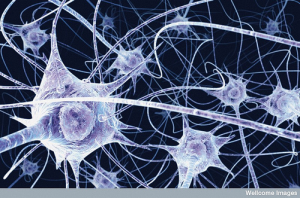 Scientific Evidence of Innate Intelligence Existence
Scientific Evidence of Innate Intelligence Existence
Neuroscientists of Ecole Polytechnique Federale de Lausanne have been working on a Blue Brain Project. The most recent discovery about the neurons independent connections based on a subject’s experience. The complete published work can be found in Proceedings of the National Academy of Sciences. (PNAS)
It has been known for sometime now that neuron connections are being established and reinforced in the human brain based on one experience – also known as “synaptic plasticity.” Do you remember your first bicycle ride? Once you learned it you will never forget. The team working on the Blue Brain Project at EPFL, led by Professor Henry Markman, however, is offering new evidence that this may not be the whole story. The scientists were able to prove that small clusters of pyramidal neurons in the neocortex interconnect according to a set of immutable and relatively rules. A complete discovery of this process was published in the last issue of the Proceedings of the National Academy of Sciences.
Each cluster contains about fifty neurons plus or minus. The scientists look at them as essential building blocks, which contain kind of in themselves a kind of fundamental, innate knowledge. For instance, certain physical experiences of this world. Mr. Markman says: “This could explain why we all share similar perceptions of physical reality, while our memories reflect our individual experiences.”
The principle determining the formation of these microcircuits is astonishingly simple. Basically, when two neurons are each connected to the same neighboring neuron, the probability that they are also interconnected is greater than average. The researchers were able to build a statistical model based on this observation.
During the experiment different rats have presented similar characteristics with neuronal circuits. If the circuits had only been formed from the experiences lived by the different animals, the values should have diverged considerably from one individual to another. That means that neuronal connectivity must in some way have been programmed in advance.
“Since John Lock, about 400 years ago, research into how the brain learns and remembers has been guided by the belief that we start from a clean slate and then print memories with each new experience. The idea that memory is like building lego with fundamental building blocks of knowledge opens up an entirely new door for research”, explains Markram.
Current technology is now allowing us to qualify the “tabula rasa” hypothesis, which argues that our brains are a “blank slate” at birth, and we only gain knowledge through experience. It’s an idea that has permeated science for centuries. There is no question that knowledge, in the sense that we typically understand it (reading and writing, recognizing our friends, learning a language), is the result of our experiences. But the EPFL team’s work demonstrates that some of our fundamental representations or basic knowledge is inscribed in our genes. This discovery redistributes the balance between innate and acquired, and represents a considerable advance in our understanding of how the brain works.
Source: Mediacom